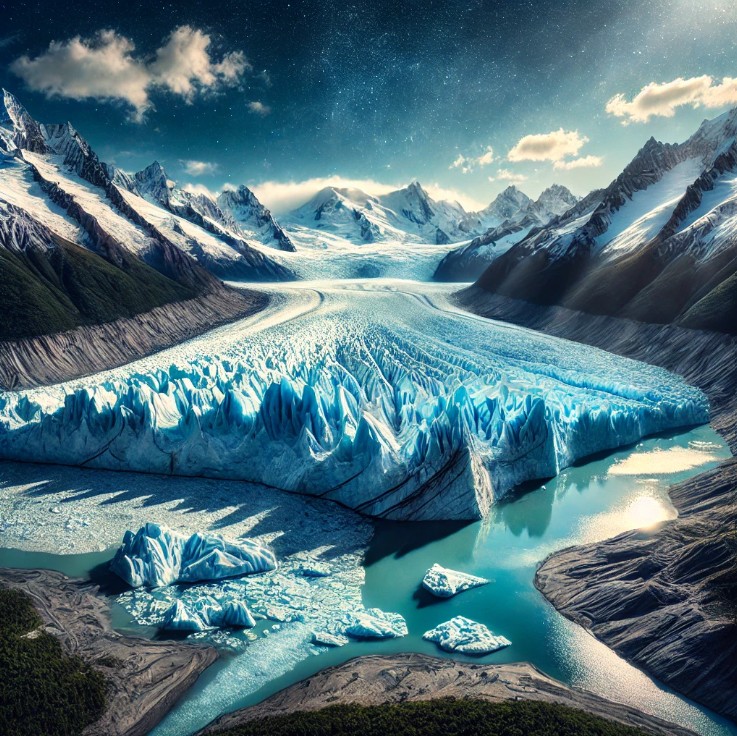Glaciers, often referred to as the “frozen reservoirs of our planet,” play a critical role in maintaining Earth’s delicate climate balance. However, due to the accelerating effects of climate change, these icy wonders are disappearing at an alarming rate. World Day for Glaciers 2025 serves as a global call to action, urging individuals, governments, and organizations to take meaningful steps to protect and preserve our planet’s glaciers before it’s too late.
🏔️ Why Are Glaciers Important?
🌊 Freshwater Supply
Glaciers store nearly 70% of the world’s freshwater, providing drinking water and irrigation for millions of people. When they melt too quickly, communities that rely on glacial runoff face severe water shortages.
🌎 Climate Regulation
Glaciers help regulate the Earth’s temperature by reflecting sunlight. As they shrink, less sunlight is reflected, leading to more heat absorption and faster global warming—a dangerous feedback loop.
🐾 Ecosystem Support
Countless species, from tiny algae to large mammals, depend on glacial meltwater for survival. Many rivers and lakes are fed by glaciers, supporting diverse ecosystems across continents.
🏕️ Cultural & Historical Significance
For indigenous communities, glaciers hold spiritual and cultural importance. They are also vital to tourism and outdoor recreation, drawing adventurers from around the world.
❄️ The Rapid Disappearance of Glaciers
According to recent studies, glaciers are melting at twice the rate they did in the early 2000s. The Himalayas, Andes, and Alps are losing ice at an unprecedented pace, threatening water supplies for millions. Even in Antarctica and Greenland, massive ice sheets are breaking apart, contributing to rising sea levels.
📉 The Consequences of Glacier Loss
🔹 Sea-Level Rise – More glacial melt leads to coastal flooding and land loss.
🔹 Extreme Weather – Changing ocean currents and temperatures cause unpredictable weather patterns.
🔹 Loss of Biodiversity – Species that depend on cold environments are at risk of extinction.
🔹 Water Shortages – Communities relying on glaciers for drinking water will face crises.
🌿 How Can We Protect Our Glaciers?
While glacier loss is a global crisis, we can all take action to slow down the damage and support sustainability efforts.
✅ Reduce Carbon Footprint
🔹 Use renewable energy sources (solar, wind, hydro).
🔹 Reduce plastic waste and promote sustainable consumption.
🔹 Opt for energy-efficient appliances and transportation.
✅ Raise Awareness & Advocate
🔹 Educate yourself and others about glacier conservation.
🔹 Support climate policies that promote emission reductions.
🔹 Encourage businesses and governments to adopt greener practices.
✅ Support Conservation Initiatives
🔹 Donate to organizations working to protect glaciers.
🔹 Participate in local environmental cleanups and restoration projects.
🔹 Travel responsibly by minimizing carbon-heavy tourism.
🌍 Join the Movement on World Day for Glaciers 2025
This year, World Day for Glaciers is about more than awareness—it’s about action. Whether through education, activism, or small daily choices, everyone has a role in preserving our planet’s frozen wonders.
